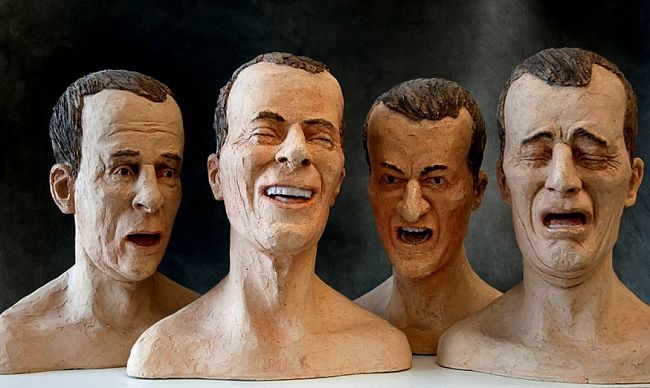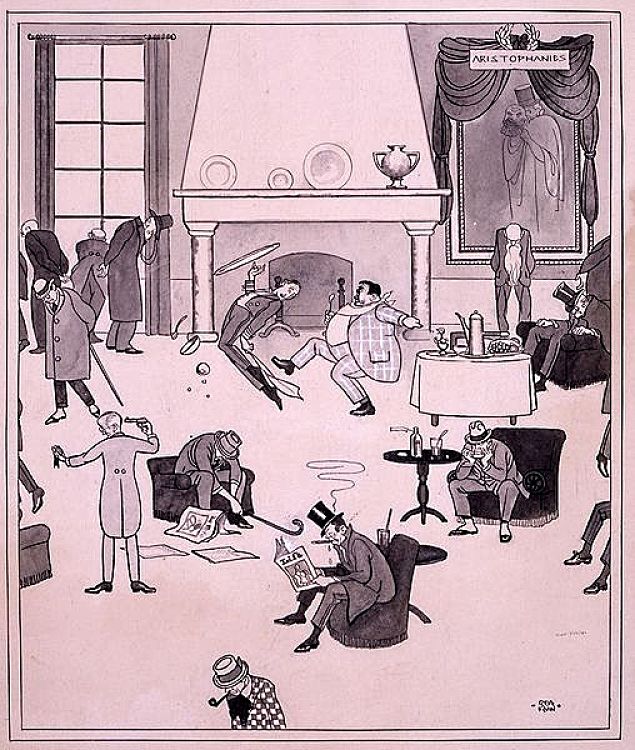Gifts to Avoid Giving to Men – Etiquette to Avoid Hidden Messages
The old expression “It’s the Thought that Counts” is a myth, because what you choose as a gift does matter, and it triggers all sorts of thoughts in the man receiving the gift. What does this gift mean about our relationship? What is the hidden message implied by the gift? Why did YOU buy this gift for ME?
There is lots of advice about how to choose a gift based on what the man likes, what their interests and hobbies are, and ways of getting hints about what they would actually like. The best way of course is to actually ask them what they would like.
But many people feel that this spoils the fun, and gives the impression that the givers does not want to put much thought into their gift. Surprises are better, but how do you make sure that the gifts are really appreciated. One way of doing this is to develop a 'Hate-List' of things that most men will definitely not like as gifts.
Surprisingly there has been research on this topic. Researchers at Harvard and Stanford have published various studies which have concluded that most people in North America would prefer to receive gifts that the giver was told they wanted.
There is reverse psychology at work here, because when people are asked what they want, they may not say what they actually want – they say what would be an appropriate gift from the person who asked them.
This article explores some of the thinking that is in the mind of the giver and receiver to work out what men don’t like as gifts and why.



Research Review
Wedding gifts are a classic. When two hundred brides and grooms were asked what were the most memorable gifts, the majority said that it was the gifts on the wedding list, rather than the surprise gifts. Likewise the givers of gifts stated that they felt that gifts on a list were just as much appreciated as surprise gifts, despite the extra effort required.
A second study tested a similar scenario. The researchers compared the responses for surprise gifts to those for gifts that the receiver actually asked for. The study of 160 people showed that the gift-givers did not think surprise gifts were appreciated any more or less than the requested gifts. However the receivers appreciated the requested gifts much more than the surprise ones.
A third study involved almost 100 subjects - half of them played the role of gift-receivers and the others the role of gift-givers. Half of the gift-givers were asked to choose an item from a list of gifts that the recipient had requested. The other saw the list of requested gifts, but were asked to choose a surprise item not on the list. As for the previous studies, the gift givers did not think that gifts on the list would be appreciated more than surprise gifts. However, the receivers were clearly more appreciative of gifts selected from their wish-list, which they regarded as being more thoughtful and personal.
Clearly the study showed that gift-receivers and gift-givers have very different perspectives. Gift-recipients prefer to get items they asked for. Gift-givers that give people what they want, are regarded as being more thoughtful. However gift givers fail to appreciate this and think that the surprise gift shows more thought and gets more appreciation than a gift requested.
A final study of 100 subjects tested whether money is appreciated more than a requested gift. Gift-givers thought that money would be regarded as inferior to the requested gift. However recipients said that they actually appreciated the money more than the items they asked for.
The researchers concluded that their studies confirmed other research that showed the people generally were very poor at taking the other people’s perspective into account when giving gifts. This applies generally as well as to giving and receiving gifts. For example when people buy and sell things we tend to overestimate how much other people share their assessment of the value of the goods. The perspective of the buyer and seller is often quite different.
The conclusion from the study was that gift givers should pay more attention to wish lists, gift registries and try to get more or less specific requests or 'hints' from the recipient. It is more about getting the recipient to hint at what they want, if you are concerned that directly asking them will spoil the surprise.
Givers should give gifts that they know the recipient wants, rather than what you think they need or you think they would like.
Gifts that Most Men Don’t Like
So how does this research help? It shows that you need to work hard at finding out what men really want. The best way to start is to know what they are almost certainly don't want.
In terms of choosing gifts for men it is about developing the reverse of a Wish-List – a Hate-List.
Below are things which will almost certainly not be liked by most men
Don't give men useless Trinkets. They want practical gifts they can use. There is the added bonus that when they use a gift that is useful. They will think of the person who gave it to them when they use it.
Don't give men Clothing. Many men have their own sense of style and habits. They may not be adventurous. There are too many hidden or implied messages in clothing. If you don’t know exact sizes, style and designs then its best to avoid clothing. Accessories are fine, but stick to very slight variations from his current style. Replacing scratched sunglasses with ones that are very similar or ones you have noticed him admiring are OK, but nothing too adventurous.
Don’t give men cologne. Inevitably, men may feel that there is something wrong with the way they smell. Choosing a cologne that he really likes may be impossible. Even duplicating an existing item may be inappropriate because they are probably sick of it.
Don’t give men Tools. Men are so fussy and particular about the tools they choose and it is impossible to get into their heads and work out what they look for. Inevitably they will think you want something fixed or renovations done.
Don’t give men Gift Cards. While it may seem perfect to give a card and let them choose what they want, they will resent it, because you could not be bothered to choose a gift for them. They may also feel you would not devote the time needed to find the perfect gift.
Don’t give men universal gifts such as whiskey, other drinks or cigars. These kinds of gifts are impersonal and do not show enough thought. Food is OK, as long as it is what he genuinely likes.
Don’t give Décor Items to me. Your décor and style tastes may be nothing like theirs. There are too many hidden messages in whatever you choose. He may feel that you think his existing décor choices are lousy, or that his home of apartment is unattractive. If he doesn’t like it, he will be obliged to put it on display even though he hates what you chose. It may be a constant reminder about what he does not like about you. Stay away from all decorative items such as pictures, posters, vases, statuettes.
Don't give men things Directly Related to their Hobbies or Interests. Don't try to give them core items, unless you know that is exactly what they want. Skirting around the edges is much safer. Focus on the peripheral items within the same interest category or topic. For example, if the man is interesting in scuba diving, don't try to get him a new face mask but choose a good book or some other peripheral gift. The same thing applies for sports and fishing.
Don't give men Ties. Men are weird about ties and will give the impression that they don't care, when they are extremely fussy. There are far to many hidden messages in ties. Mothers often give their sons ties that they hate. Socks and underwear are definitely out for the same reason.
Don't give men Magazine Subscriptions. Far too boring and there is nothing to give him on the day.
Don't give men Gimmicky Toiletries and Gadgets. You know the sort of thing 'nose hair clippers, electric razors or weird tooth brushes. The chances he will like them are very remote.
Don't give men Gold Jewelry. Men either like it or not and you need to know which side of the fence they inhabit. It will be very hard to choose the style that they actually like and appreciate
Don't give men Office Supplies. Boring, Boring Boring - they won't appreciate it.
Don't Give men Any type of "Self-Improvement" Gifts, unless they specifically asked for them. All such items will be misinterpreted and contain hidden messages that can't be avoided.